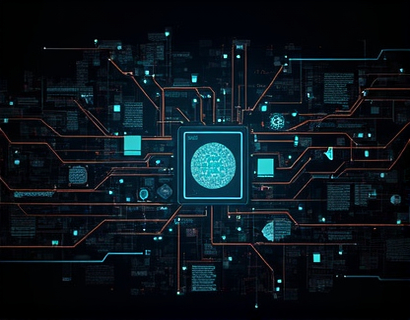Advanced Cybersecurity Strategies for High-Net-Worth Individuals, Celebrities, and Cryptocurrency Professionals
In the rapidly evolving digital landscape, the security of digital assets has become paramount for high-net-worth individuals, celebrities, and professionals in the cryptocurrency sector. The unique challenges posed by the digital world require tailored cybersecurity strategies that go beyond standard security measures. This article delves into advanced digital defense strategies specifically designed to protect the most valuable information and assets of these high-risk groups.
Understanding the Threat Landscape
The cybersecurity threats faced by high-net-worth individuals, celebrities, and cryptocurrency professionals are both sophisticated and varied. These groups are prime targets due to the high value of their digital assets, which include not only cryptocurrencies but also sensitive personal data, business secrets, and financial information. Cybercriminals employ advanced techniques such as phishing, ransomware, and zero-day exploits to breach security systems. Additionally, insider threats and social engineering attacks are increasingly common, making it crucial to adopt a multi-layered defense approach.
Tailored Security Measures for HNWIs and Celebrities
High-net-worth individuals and celebrities often manage complex portfolios that include traditional assets as well as digital currencies. Their security needs are multifaceted, requiring solutions that protect both their online and offline lives. Here are some advanced strategies tailored for this group:
- Customized Risk Assessments: Conduct thorough risk assessments to identify vulnerabilities in both digital and physical assets. This includes evaluating the security of home networks, personal devices, and business operations.
- Multi-Factor Authentication (MFA):
- Encrypted Communication Channels:
- Regular Security Audits:
- Physical Security Enhancements:
Implement MFA for all digital accounts, especially those accessing cryptocurrency wallets and financial platforms. This adds an extra layer of security beyond just passwords.
Use end-to-end encrypted messaging apps and email services to protect sensitive communications. This is crucial for avoiding interception by malicious actors.
Conduct regular security audits of all digital systems and networks. This helps identify and mitigate potential vulnerabilities before they can be exploited.
Ensure that physical security measures are robust, including secure storage for hardware wallets, biometric locks for home and office entries, and surveillance systems.
Protecting Cryptocurrency Assets
Cryptocurrency security requires specialized attention due to the decentralized and digital nature of these assets. Here are some advanced strategies to safeguard crypto holdings:
- Hardware Wallets:
- Cold Storage Solutions:
- Segmented Access Control:
- Regular Software Updates:
- Monitoring and Alerts:
Store cryptocurrencies in hardware wallets, which keep private keys offline and are less susceptible to online attacks. Choose reputable brands with strong security features.
For long-term storage, consider cold storage options such as paper wallets or secure hardware devices stored in safe locations. This minimizes exposure to online threats.
Implement segmented access control for different crypto assets. Use unique, strong passwords and MFA for each wallet to prevent a single breach from compromising all assets.
Keep all cryptocurrency-related software, including wallets and exchanges, up to date with the latest security patches to protect against known vulnerabilities.
Set up real-time monitoring and alerts for transactions and unusual activities on crypto accounts. This helps detect and respond to potential breaches quickly.
Defending Against Advanced Cyber Threats
Advanced cyber threats require sophisticated defense mechanisms. Here are some strategies to counter these threats:
- Advanced Threat Detection Systems:
- Incident Response Planning:
- Employee Training and Awareness:
- Network Segmentation:
- Zero Trust Architecture:
Deploy advanced threat detection systems that use machine learning and artificial intelligence to identify and mitigate complex attacks in real-time.
Develop and regularly update an incident response plan. This plan should outline steps to take in the event of a security breach, including containment, eradication, and recovery processes.
Conduct regular cybersecurity training sessions for all staff, focusing on recognizing phishing attempts, safe browsing practices, and secure handling of sensitive information.
Segment networks to limit the spread of malware and unauthorized access. This ensures that a breach in one part of the network does not compromise the entire system.
Adopt a zero trust security model, where no user or device is trusted by default, even inside the network perimeter. This approach requires continuous verification and authentication.
Ensuring Privacy and Compliance
For high-net-worth individuals and celebrities, privacy is as important as security. Ensuring compliance with data protection regulations is also crucial:
- Data Minimization:
- Compliance with Regulations:
- Privacy-Focused Tools:
- Regular Privacy Audits:
- Anonymization Techniques:
Adopt data minimization principles by collecting only the necessary data and securely disposing of unnecessary information. This reduces the risk of data breaches.
Stay compliant with global data protection laws such as GDPR, CCPA, and others relevant to your operations. Regularly review and update policies to align with changing regulations.
Use privacy-focused tools and services for communication, storage, and transaction processing. This includes encrypted databases and privacy-centric blockchain platforms.
Conduct regular privacy audits to ensure that all data handling practices meet the highest standards of privacy and security.
Implement anonymization techniques for data that does not require identification, such as using pseudonyms in communications and transactions.
Building a Culture of Security
A strong security posture is not just about technology; it also involves fostering a culture of security within organizations and personal practices:
- Leadership Commitment:
- Security as a Core Value:
- Regular Security Drills:
- Open Communication Channels:
- Continuous Learning:
Lead by example. Leaders should demonstrate a commitment to security by prioritizing it in decision-making and resource allocation.
Integrate security into the core values of the organization or personal routine. This ensures that everyone understands the importance of security and takes responsibility for it.
Conduct regular security drills and simulations to test and improve response capabilities. This helps identify gaps and refine procedures.
Encourage open communication about security concerns and incidents. Create a safe environment where team members feel comfortable reporting potential issues.
Promote continuous learning and professional development in cybersecurity. Encourage attendance at conferences, workshops, and training sessions.
Conclusion
In the digital age, the security of high-net-worth individuals, celebrities, and cryptocurrency professionals is more critical than ever. By implementing advanced digital defense strategies and maintaining a proactive approach to cybersecurity, these groups can better protect their assets and personal information. Tailored security measures, combined with a culture of security, form the foundation of a robust defense against the ever-evolving threat landscape.










































